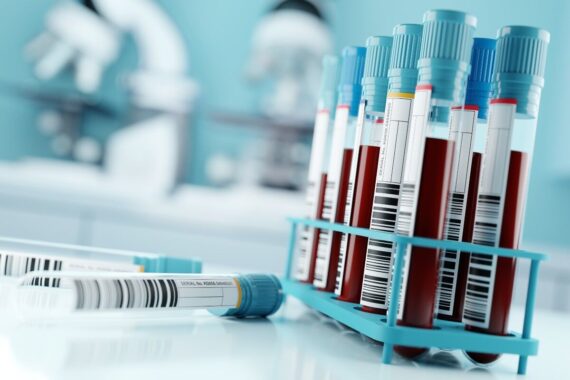LMC demands ‘detailed’ investigation after delayed blood tests disrupt GP workload

An LMC has demanded a ‘detailed’ investigation is launched into a flawed IT system rollout which led to delayed blood tests and cancelled GP appointments across Nottinghamshire.
The introduction of a new IT system in pathology departments at Nottingham University Hospitals and Sherwood Forest Hospitals led to blood test results being delayed, forcing GPs to cancel appointments due to the extra time needed to look through the results.
GPs told Pulse they got duplicate results coming through which meant they had to go through hundreds of duplicates.
Nottingham and Nottinghamshire ICB has since apologised for the ‘significant impact’ this has had on GP practices.
Nottinghamshire LMC advised practices that they may decide to reduce some of their services to enable them to check and process results, which entails them making declared changes to their OPEL pressure escalation level.
The LMC’s chief executive Michael Wright told Pulse that some GPs had to start working ‘much earlier’ than their clinic start time to try to keep up with the extra workload, with one having to start at 4.30am.
He added that the LMC ‘will be pressing for a detailed investigation into how this has been handled’.
He said: ‘It is frustrating that practices were reassured that the new system would work with minimal disruption, it is causing so many problems and clearly is not currently fit for purpose presently a week on from the switch. Nobody wanted these problems though.
‘We understand that the testing of the system was made on dummy patients and then when it went live for real patients the problems emerged.
‘Some GPs are having to start working much earlier than their clinic start time just to try to keep up with the extra workload, one example was a 4.30am start.
‘We don’t want patient care to be compromised but the extra time needed to deal with the issues is having to come from somewhere.
‘Once business as usual is resumed we will be pressing for a detailed investigation into how this has been handled – the planning and consultation with the profession, implementation, communication with practices and the public so that any similar change projects are implemented in an improved way.’
Nottinghamshire GP Dr Carter Singh told Pulse the change in IT systems had not been communicated ahead of time.
He said: ‘According to the trusts, the upgrade was extensively tested before they implemented it, but when they implemented it last Monday morning, there were multiple unanticipated issues that arose and it had significant impact on general practice across the city and the county.
‘The first I heard about this was when it was actually implemented, I wasn’t aware of any communications ahead of the event or ahead of the upgrade, to inform us about the need for a change or to expect any anticipated issues with it.’
Nottingham and Nottinghamshire ICB’s director of primary care Caroline Goulding said: ‘We have experienced some issues following the launch of new IT systems in the pathology departments at Nottingham University Hospitals and Sherwood Forest Hospitals on 30 June.
‘This has been impacting the way blood test results are reported to GP practices. Whilst this has not affected the accuracy and quality of the tests, it has, regrettably, led to practices requiring extra time to process and study those results due to the way they have been provided.
‘The ICB and hospital leaders have been working with GP representatives to work through these problems at speed and significant progress has been made.
‘The new IT systems were required to replace an old system which was no longer being supported by the supplier and as with many projects of this size and complexity, this can sometimes lead to some short-term disruption.
‘We are sorry for the significant impact this has had on our GP practices and grateful for their continued hard work and support during this transition period.’
Last year, a ‘critical incident’ caused by IT issues in Nottingham University Hospitals’ pathology service led to patients being asked not to attend phlebotomy appointments.
The incident, which was stood down by the trust the following day, disrupted its ability to process hospital and GP blood test results.
Last year, Pulse reported on a fault with University Hospital Trust Southampton’s new pathology IT system which caused GPs ‘significant’ workload issues and ‘anxiety’ for patient safety.
And a ransomware attack on pathology services provider Synnovis caused 1,700 elective procedures and over 10,000 outpatient appointments in south east London to be postponed.
Related Articles
READERS' COMMENTS [1]
Please note, only GPs are permitted to add comments to articles














I’m presuming this is the same issue we had in December in Leeds as the replacement lab IT system is gradually being upgraded nationally